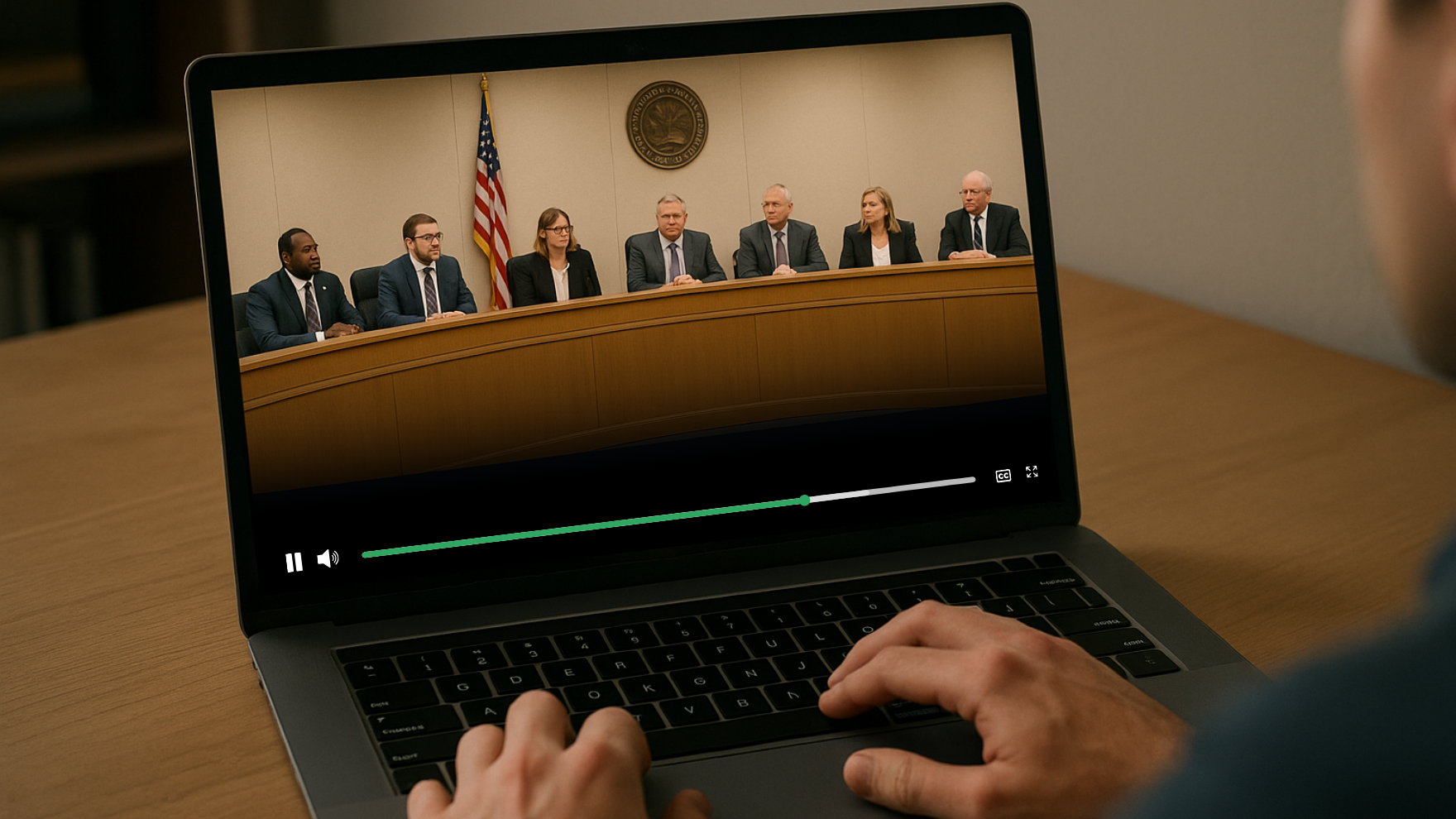
Automatic Speech Recognition (ASR) technology used in AI captioning and transcription tools keeps getting better—but it’s still not perfect. Many providers tout a specific accuracy rate, but that number often comes from a best-case scenario—or maybe just hopes and dreams.
The best way to judge AI transcription accuracy? Watch it for yourself. Do the results impress you? Could someone reading along without audio easily follow what’s happening? If so, that’s a win.
When it comes to live automated captioning, it’s not realistic to expect 100% accuracy, but these tools do learn and improve over time. And there are definitely a few things you can do to boost the chances of your captioning solution getting it right the first time. The better captioning platforms also allow for human review and correction after the meeting, ensuring that your on-demand recordings reflect an accurate public record.
The Human Factor
Speech-to-text technology has definitely progressed in recent years. Automatic Speech Recognition (ASR) keeps getting better and better, which means AI-based live captioning in the cloud has improved as well with minimal latency. But it’s not perfect and, honestly, it never can be.
You can’t ignore the human factor. Not everyone who sits on a city commission or addresses their representatives is a voiceover artist reading from a script. You’ve got mumbling, fast talking, mispronunciations, background noise, back and forth debates, officials who don’t use microphones properly, all sorts of accents, and other factors that can reduce accuracy.
How to Train Your AI
With the new ADA requirements (WCAG 2.1 AA), closed captioning at the local government level are becoming more important than ever. Not only do you want to create more inclusive content, you want those captions to be as accurate as possible. Here are some tips to help reduce the errors.
• Train your speakers. Let your local officials know how important caption accuracy is for their constituents. Teach them how to use their microphones, everything from keeping a proper distance to avoiding the adjustment of their goosenecks while speaking. If permitted, post instructions where the public will be speaking, so they can follow proper microphone etiquette as well.
• Train your ASR system. Many AI-based speech-to-text offer the option of creating a custom vocabulary. It’s definitely worth your time. From complicated last names to challenging locales, you can add to your dataset and train your system to accurately convert uncommon words (and avoid inaccurate attempted translations to other languages).
• Add more microphones. To make sure all the people who speak regularly can be heard well, avoid sharing microphones between commissioners or other seats on the dais. Every position needs its own microphone. The better the audio, the better the transcript and corresponding captions.
• Avoid background noise. Keep microphones away from noisy equipment, such as printers and HVAC systems. Avoid microphones near the door, as they will likely pick up conversations from the hallway or from people entering or exiting the chambers. When possible, keep squeaky chairs away from your dais and make sure those chamber doors stay squeak-free, too. You’re never going to eliminate all background noise, but there are some elements you can control.
Today’s AI-based captioning services really are very accurate, even though it’s not realistic to put a number on performance in the real world. While you will likely never reach those mythical accuracy claims of AI captioning service providers, we’re 100% sure that taking these proactive steps will help improve your speech-to-text results.
Event Replay - Demystifying Closed Captioning: What WCAG 2.1AA Really Requires for Government Video
Get clarity on WCAG 2.1AA captioning requirements. Learn what’s required, what’s recommended, and how to keep your government video content compliant.
.png)








.png)




.png)
